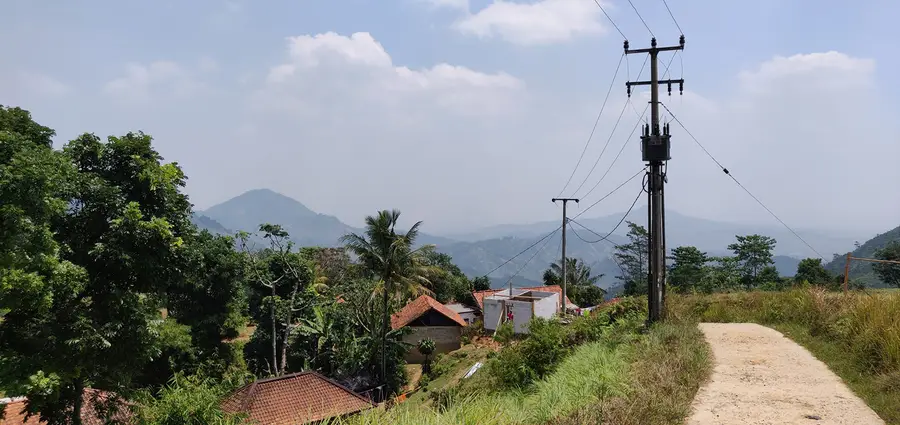
Energy access and energy consumption in developing nations have grown to be arguably two of the most indicative barometers of economic prosperity. Interestingly enough, there exists an inherent warning; greater energy consumption has historically been linked to increased emissions. As a result, countries around the world are developing short- and long-term plans to bolster efforts in renewable energy resources, advanced battery technology, next-generation metering, and improved infrastructure to help lower emissions. Doing so empowers working-class citizens by enabling a higher quality of life and improving the human condition.
Integration of data and data acquisition protocol has in large part facilitated higher levels of electrification in several locations around the world. Insight on where the electricity grid has the most acute need allows for best value procurement and enables savings for both asset owners and the end user. To integrate variable generation (VG) in the most effective manner, it is paramount to gather the right data.
Data Gathering Can Include Several Correlating Datasets, Including:
- VG Resource Data: estimate renewable energy (e.g. solar or wind, and consequently storage requirements) potential by qualifying variability and uncertainty of resources with respect to location and weather patterns
- Load Data: historical characterization of the location, timing, and magnitude of electricity demand of associated customers
- Forecast and Forecast Error Data: estimate reserve requirements for dispatch models (e.g. hourly or day-ahead markets)
- Equipment Constraints: understand what the physical specifications and control features are of connecting VG and/or energy storage equipment to the grid (e.g. frequency response, inertial response, reactive power)
- Resource Fleet Characteristics: identifies what the operational costs and flexibility needs are of the system
- Transmission Data: reveals what the power flows are under various variable renewable energy (VRE) scenarios by depicting the spatial distribution of the network and provide information on capacity, impedance, and line ratings
Advanced digital solutions such as cloud computing, sensors, advanced analytics, among a host of other solutions, have enabled the collection and management of these types of data. Developers, integrators, and transmission and distribution (T&D) companies are well equipped to manage these datasets and improve the access ecosystem, especially in developing countries. Further, flexible resources like energy storage provide power when end users need it the most. People and businesses that historically have not had electricity are accessing the resource more readily than ever.
The Sumba Iconic Island Project
The Sumba Iconic Island Project is one of many examples of how advanced data gathering and technologies improve access and quality of life in remote locations. Like many regions in Indonesia, Sumba has a chiefly rural population that is spread out throughout the island. Serving approximately 650,000 residents, the island experiences significant sun, wind and hydro resources. Sumba’s holistic microgrid currently helps electrify approximately half of the island’s residents (up from 25% in 2010), but the goal is to provide access to reliable and 100 percent renewable forms of energy for all of the inhabitants of Sumba Island, 100% renewables by 2025, ending their dependency on fossil fuels. Without electricity, its children cannot do their homework at night, and families cannot run competitive businesses.
With the expanding influence and installation of renewable resources in this project, smart data capabilities and advanced technologies play an integral role in resource and procurement planning. More informed planners are able to identify key junctions throughout the island that have the most acute needs. For instance, several solar installations throughout the island of Sumba utilize thin film panels that do not de-rate when exposed to excessive heat. Transmission line data additionally revealed that adding battery storage at key junctions in the transmission system led to lower load efficiency losses and consequently more revenue recovery.
Unlocking the value that renewables play in Sumba Island came largely through customized solutions. The competitive draw of a microgrid is that it can be highly tailored to meet the specific clean energy and performance targets for theoretically any end user. But for developing economies, plug-and-play solutions that can be procured at lower costs and on a broader scale are increasingly serving as a building block to a stronger local economy. Standardized microgrid building blocks that can be pieced together to closely fit customer needs lower the barrier for entry. Companies like Spirae believe that commoditizing the industry in this way will be the future of the industry.
The Payoff
Microgrids are typically financed by countries or other investors through funds to primarily cover upfront costs. Thereafter, investors want to see the operation and maintenance be self-sustaining through tariffs or subsidies for the projects to become bankable. To help ensure profitable operations, advanced technologies that actualize data must be a high business priority. It is imperative for companies involved in project development to ensure operational sustainability, especially in emerging energy economies. As funds are generally targeted for high-impact projects on the grid, early projects are generally a proof of concept. Therefore, if it doesn’t exhibit impactful results, more funds may not be available for future projects and interest will grow cold.
Succeeding in today’s emerging energy economy requires new thinking and implementation strategies from all of the energy stakeholders. New technologies, particularly those like advanced automation and energy storage, will be key to unlock long-term economic prosperity.
This article was written specifically for and originally published on T&D World’s website, www.tdworld.com.

